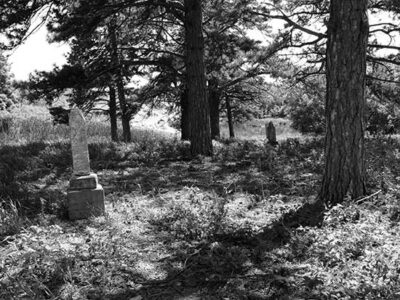2350 b.c.e.
Law
Urukagina’s Code, the earliest known code of law, consolidates a series of even earlier Mesopotamian statutes. It accords the accused some rights: notification of why they are being punished, for instance.
286 c.e.
Monasticism
On the run from Egyptian persecutors, St. Anthony of Egypt renounces his family fortune and heads into the desert, where he begins to gather followers and to define the monastic way of life.
1388
Social Welfare Legislation
The British Statute of Cambridge requires municipalities to care for citizens who are incapable of work.
1662
Public Transportation
Blaise Pascal introduces a horse-drawn, public omnibus to ease congestion on Paris streets.
1844
Co-op
After an unsuccessful weavers strike, 28 blacklisted textile workers organize the Rochdale Society of Equitable Pioneers in Rochdale, England–the first widely known cooperative. The unemployed weavers scrape together enough capital to open a small dry goods store.
1848
Public Libraries
The first lending library was founded in 1731 by Benjamin Franklin and his Pennsylvania associates, but Boston is home to the first municipal lending library: the Boston Public Library.
1879
Psychotherapy
The roots of modern clinical psychology are planted by Wilhelm Wundt at the University of Leipzig in Germany, where he founds the first experimental psychology laboratory.
1880
The Boycott
The representative of a British absentee landowner, Charles Boycott, evicts tenant farmers and refuses to lower rents in County Mayo, Ireland. As a result, he and his family are ostracized: Servants, farmhands, store clerks, even the mailman refuse him service. Eventually, he agrees to a 10 percent reduction in rents.
1886
Ticker-tape Parade
During a parade to celebrate the dedication of the Statue of Liberty, office workers spontaneously toss rolls of stock-ticker tape out windows overlooking the parade route.
1895
Advice Column
Elizabeth Meriwether Gilmer’s advice column, written in the New York Journal under the pen name Dorothy Dix, is intended as witty social satire, but readers respond seriously, and a new genre is born.
1907
Satyagraha
While he is an attorney in South Africa, Mohandas Gandhi organizes a campaign of civil disobedience against laws discriminating against Indians. His movement, which he terms satyagraha, or “holding fast to the truth,” wins concessions from the South African government.
1936
Spring Break
A swimming coach at Colgate University unwittingly launches this hedonistic holiday by holding spring training at Fort Lauderdale’s Casino Pool. By 1985, 350,000 college students are descending on the city each spring.
1948
Peace Studies
Manchester College in Indiana founds the first peace studies program in the United States–the model for more than 200 similar programs.
1961
Amnesty International
Peter Benenson, a British attorney, writes an impassioned editorial after two Portuguese students are sentenced to prison for toasting freedom in a Lisbon café–and launches an international organization in support of human rights.
1964
Cohousing
In 1964, a group of Danish families begin planning an experimental community of connected homes on a shared plot of land. Their idea–a cooperative community of independent households–becomes a popular housing option in northern Europe and is now catching on in North America.
1975
Commissions on Truth and Reconciliation
A commission set up to investigate the crimes of deposed Ugandan dictator Idi Amin represents a new kind of tribunal: one that strives for a full accounting of crimes in lieu of punishment. The process sets a model for later truth commissions in Argentina, Chile, El Salvador, and–most notably–South Africa.
1976
Microlending
Economist Muhammad Yunus discovers that a small loan–as little as $25–can help impoverished artisans launch thriving businesses in Bangladesh. His lending institution, Grameen Bank, pioneers the practice of lending small but critical investments for independent business owners in poor nations and neighborhoods.
Late 1980s
Raves
All-night dance parties held in warehouses burst on to the scene in England during 1980s, particularly in Manchester.
1999
Online University
Jones International University, based in Englewood, Colorado, becomes the first all-online university to gain accreditation.
Joe Hart is a freelance writer specializing in forgotten, overlooked, and suppressed history. His book, Down and Out: The Life and Death of Minneapolis’ Skid Row, will be published by the University of Minnesota Press in the fall of 2002.




